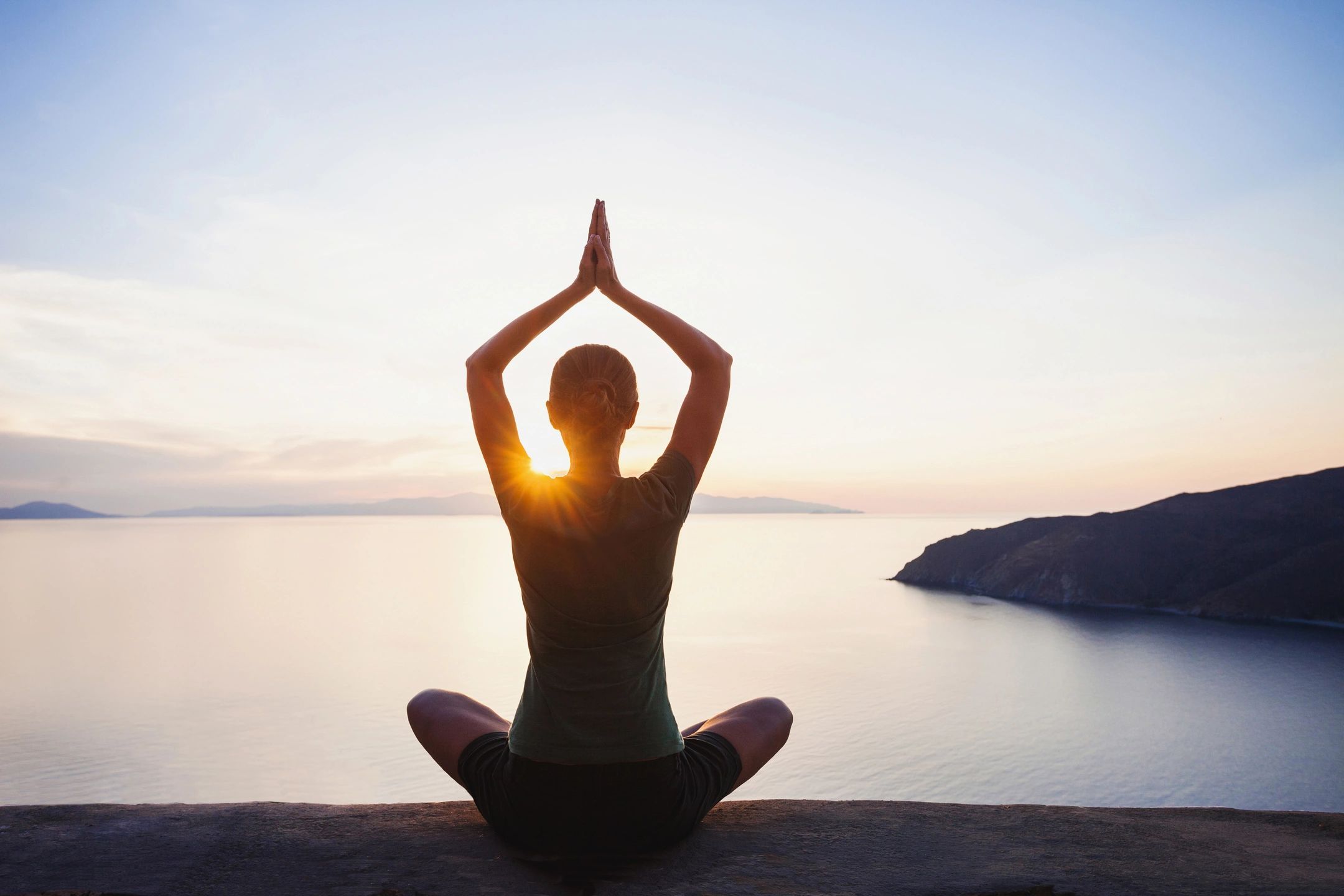So we learned in “Establishing our Foundation” (Part 1 of 5) that there are 4 parts to a healthy foundation.
1. The Physical Body
2. The Emotional Body
3. The Mental Body
4. The Spiritual Body
Stabilizing our foundation depends on the strength and the healthy balance of each. So, let’s get us started getting balanced at the Physical Level:
Here are 10 ways to Strengthen our Physical Body!
1. Get Physical –
You might be surprised how quickly your physical endurance and enthusiasm increase when you start a regular fitness regimen. The most important part of exercise is to actually get out there and get sweaty. Thinking and talking about exercise just doesn’t cut it unfortunately! Starting out with a well-balanced exercise plan that includes cardiovascular conditioning, strength training, and flexibility training can offer incredible benefits such as weight loss, increased energy, positive effects on depression, and mental clarity to perform cognitive tasks. Make an effort to find an aerobic activity such as swimming, bike-riding, brisk walking, or dancing and establish a schedule for 3-4 times a week for 30-45 mins.
Remember, taking care of our body does more than just help us get into shape! Studies show that establishing an exercise regimen that incorporates both strength training that targets specific muscle groups balanced with daily cardiovascular workouts can help combat the biomarkers of aging such as: decreased circulation, atrophying muscle mass, and depleting bone-density. Exercise can also aid in balancing blood sugar levels and provide assistance in lowering cholesterol. So get out there and get moving. Try different kinds of activities to diversify your schedule. One day try something high energy like kick boxing and then try and balance yourself out with yoga! Be open minded and try it all! Exercise is a great way to re-connect the Mental, Physical, Emotional, and Spiritual Bodies!
2. Get Grounded –
Are you Checked IN or are you Checked OUT? That’s what grounding means!
Being grounded means you have stability, security, and control over your life. Being grounded means you are present in the now. It is the act of looking at your life and not obsessing with the future or being stuck in the past. It physically means your human energy is firmly planted and established in your body instead of drifting off.
Individuals who are grounded are ready to handle life’s challenges instead of pretending difficulties aren’t there. Being grounded is important because it helps you face life instead of running from it. And ironically, being properly grounded can help you reach mental, spiritual, and emotional stability as well. To Get Grounded you literally, plant your bare feet on the earth as often as possible. Take off those shoes and go sit at a park to listen to the birds and have a healthy sandwich!
Get Connected by Getting Grounded!
3. Get Breathing –

We all know that breathing is important. But, just how important is it??
In some cultures, breathing isn’t just for the absorption of oxygen. In Norse mythology, the last breath a person took was understood to be an evaporation of the human life. When that last breath left a Viking’s body, the soul was released from the physical body and the spirit was able to journey to the afterlife. Breathing for the Norse meant spiritual life as well as physical life.
We know that breathing supplies our cells with oxygen and it helps rid our bodies of waste products and toxins. It’s important to breathe well though. Breathing effectively increases oxygen transit to the cells and promotes healing and calmness. Breathing efficiently can be achieved through practice and repetition. Breathing too fast or hyperventilating can actually make it feel like you aren’t getting enough oxygen. Hyperventilating can lead to anxiety and that can lead to a host of other symptoms like:
- A Rapid Heartbeat
- Nervousness
- Chest Pains
- Lightheadedness
- Weakness and Tingling
- Feeling Faint
Breathing deeper and slower can help eliminate hyperventilation and the stress associated with it.
Let’s go back to Anatomy & Physiology class for a minute. Remember that humans have two lungs and inside each one are compartments called lobes. If we fill the lungs up to capacity, that means all those lobes get filled with air and then release it slowly, the body has time to absorb the oxygen and release carbon dioxide effectively. That process can help ward off shallow breathing that can lead to hyperventilation and that means more control over our triggers for anxiety. There are multiple names for taking deep breaths like “belly-breathing” or “abdominal breathing.”
The actual technical name for “belly-breathing” is the practice called “Diaphragmatic Breathing.” The practice utilizes the diaphragm, a muscle locate between the thoracic cavity and the abdomen along with the ribs to help get as much efficiency out of each breath as possible by taking in deeper slower breaths.
Breathing is important because our cells always need a fresh supply of oxygen so they can produce energy – breathing with control and using practices like belly breathing can help the physical part of our body be as calm and efficient as possible. Calm = Balance = Goal of Climb With Integrity!
4. Get Grateful –

Stop for just a moment and think about the things you have going on around you. Perhaps you might not be exactly where you want to be; but, there are good things if you really look. It might be difficult at times to stay positive; but, research shows that establishing a healthy outlook and surrounding yourself with a social support network has numerous physical health benefits. Being grateful helps combat feelings of loneliness, isolation, or inadequacy. If you focus on the good and positive things, feeling good about yourself and dealing with stress can be easier.
Ask yourself what you want and cherish wins no matter how small. We have the power to focus on negative things or we can practice focusing on the positive aspects of our lives. Depression is a very real and very serious reality. Managing our thoughts is a very individualized process and a first step is recognizing and finding a base-line for getting stronger and more balanced. The goal with Climb With Integrity is to find individual balance and happiness and learning how to understand our individual behaviors and needs is a big step to figuring out ways to help ourself or find professionals who can assist.
Friends and loved ones can be a good source of advice and can be useful in suggesting new ways of handling problems. Friends and loved ones can also be a fantastic distraction from what’s bothering you- so let them distract you and relish in the few happy moments where you can forget your troubles! Even a few minutes a day can put you on a track to longer term happiness. If your network of friends is smaller than you might like it, think about volunteering for a project or an association in need. You also might try joining an intramural sports team or an activity group. There are also meet up groups online that are great way to network and make new friends!
5. Get Plenty of Sleep –
“I love sleep. My life has the tendency to fall apart when I’m awake, you know?”— Ernest Hemingway

On the average, human beings typically need between six and eight hours of sleep each night. Those numbers are actually referring to restful sleep, meaning that you’re not having to use drugs or alcohol to get to sleep but that you’re easily drifting off and are sleeping soundly throughout the night. If you feel rested, energized, and vibrant when you wake up, you’ve had a successful and restful night sleep. If you feel tired and beat up, you obviously have not.
Sleep is essential for the body and mind to repair. When you are well-rested, you can address stressful situations in a more calm, balanced, and collected approach. In our busy society, it is often almost considered bragging rights to say, “I didn’t sleep a wink last night.” There is often an implied negative connection to someone staying home and catching up on rest after a busy week. Even though we can’t actually catch up on lost sleep, sleep is many times neglected and underemphasized. Over time, inadequate sleep perpetuates and worsens depression, weakens our immunity, disrupts the body’s innate balance, contributes to weight gain, and speeds up the body’s aging process. Don’t feel pressured to over extend yourself when you are exhausted. Read your body and rest when you need to, even if you have promised yourself that you are going to workout 6 days a week. You know your body better than anyone! Don’t just skip a workout and take a nap because you are looking for an excuse; but, most certainly listen to your body and pay attention when you are pushing yourself too far.
Physically our bodies can repair themselves so much easier by establishing healthy sleeping behaviors, understanding what disrupts our sleep, and regulating night time rituals and patterns. So, go get some Sleep!
7. Get Green –
Taking care of the physical body means eating a well-balanced and healthy diet. A balanced diet is not doing a crash diet and starving ourselves to get in shape. Eating a well balanced diet is a way of consuming all of the right nutrients that your body needs in order to heal and be healthy. The following examples are of the daily calorie intake based on
USDA United States Department of Agriculture (USDA) guidelines:
- children ages 2 to 8: 1,000 to 1,400 calories
- active women ages 14 to 30: 2,400 calories
- sedentary women ages 14 to 30: 1,800 to 2,000 calories
- active men ages 14 to 30: 2,800 to 3,000 calories
- sedentary men ages 14 to 30: 2,000 to 2,600 calories
- active men and women over 30: 2,200 to 3,000 calories
- sedentary men and women over 30: 1,800 to 2,200 calories
Everyone of us is different and each requires a different amount and type of nutrients. Eating dark leafy greens that are rich in vitamins, minerals and chlorophyll can help alkalize the body. Knowing what we should eat and how much is our first step. Next is recognizing our choleric intake amounts and balancing our diet with a majority of our calories coming from:
- fresh fruits
- fresh vegetables
- whole grains
- legumes
- nuts
- lean proteins
The
USDA also reports that four of the top 10 leading causes of death in the United States are directly influenced by diet. These are:
- heart disease
- cancer
- stroke
- diabetes
By eating well and balancing our lifestyles out with healthy exercise we can combat these leading causes of death.
So now we know what we should eat and why we also need to combat some of the food that isn’t so healthy. The
USDA has determined that the top list of foods to say “No” to are:
- alcohol
- refined grains
- solid fats
- saturated fats
- trans fats
- salt
- sugars
Overall physical health has many components. Eating well, sleeping soundly, being positive, controlling our breathing, and exercising are just some of the ways to balance the body. The entire human condition isn’t only controlled by physical wellbeing. Remembering to balance our mental health, our emotional health, and our spiritual health are all part of the equation. Incorporating these actions into your daily routine can help create them into healthy habits and in turn helping you maintain over all balance and happiness. Getting to know our habits and finding ways to eliminate toxins and preservatives are just a few ways that we can focus on our health.
Love, Success, & Positive Energy!
~Theresa



 Stop for just a moment and think about the things you have going on around you. Perhaps you might not be exactly where you want to be; but, there are good things if you really look. It might be difficult at times to stay positive; but, research shows that establishing a healthy outlook and surrounding yourself with a social support network has numerous physical health benefits. Being grateful helps combat feelings of loneliness, isolation, or inadequacy. If you focus on the good and positive things, feeling good about yourself and dealing with stress can be easier.
Stop for just a moment and think about the things you have going on around you. Perhaps you might not be exactly where you want to be; but, there are good things if you really look. It might be difficult at times to stay positive; but, research shows that establishing a healthy outlook and surrounding yourself with a social support network has numerous physical health benefits. Being grateful helps combat feelings of loneliness, isolation, or inadequacy. If you focus on the good and positive things, feeling good about yourself and dealing with stress can be easier. On the average, human beings typically need between six and eight hours of sleep each night. Those numbers are actually referring to restful sleep, meaning that you’re not having to use drugs or alcohol to get to sleep but that you’re easily drifting off and are sleeping soundly throughout the night. If you feel rested, energized, and vibrant when you wake up, you’ve had a successful and restful night sleep. If you feel tired and beat up, you obviously have not.
On the average, human beings typically need between six and eight hours of sleep each night. Those numbers are actually referring to restful sleep, meaning that you’re not having to use drugs or alcohol to get to sleep but that you’re easily drifting off and are sleeping soundly throughout the night. If you feel rested, energized, and vibrant when you wake up, you’ve had a successful and restful night sleep. If you feel tired and beat up, you obviously have not.





